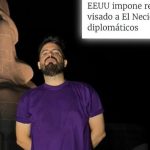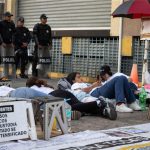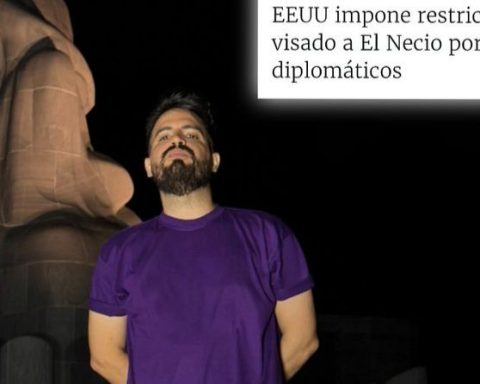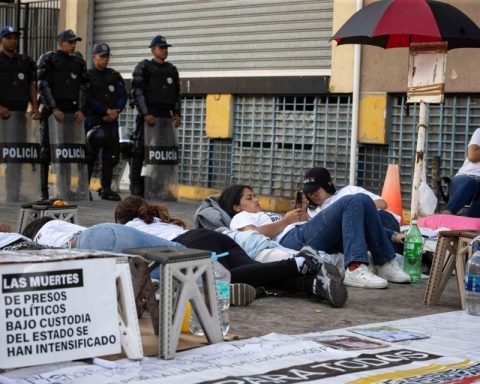
There are enough printed ballot papers for 10 rounds. However, the constituents across the board agree that there will be fewer turns necessary to elect the next board of directors of the Constitutional Convention (CC), which does not mean an easier scenario politically, but on the contrary.
Today the new presidency and vice-presidency of the constituent body are elected, who will be key in the new stage of the CC, and especially in the face of the exit plebiscite. At 09:30 hours the plenary session is scheduled to begin, where the outgoing president, Elisa Loncon, and the outgoing vice president, Jaime Bassa will make a public account. Thus, at 11:00 hours it is estimated that the papal voting process will begin, which will mean carrying out more than one round, until the 78 necessary votes are obtained.
Yesterday there were several negotiations and movements of pieces that forced to rethink conversations and refine the political strategy, inevitable in these scenarios. Among them, the determination of Chile Digno to lower, for the presidency and vice-presidency, the candidacy of the constituent Bárbara Sepúlveda (PC), but keep her name for a deputy vice-presidency. While Sepúlveda told Third that “it is necessary to show signs of political generosity” – amid criticism for a power grab by Approve Dignidad – the truth is that the determination is also strategic, as some in Chile Digno admitted, to strengthen a “transforming” bloc and make the point to a center-left space, as has happened throughout the entire operation of the Convention.
Thus, the vote of Chile Digno will be for the representative of the Plurinational and Popular Coordinator, Eric Chinga. To this is also added that Bárbara Sepúlveda has guaranteed the sponsorships to reach an associate vice presidency, if a reciprocal support agreement that was given in the previous election of these positions is fulfilled, when the PC, with its sponsorships, made the election of Elisa Giustinianovich, of the Constituent Social Movements (MSC). Thus, the MSC should this time do the same with Sepúlveda, who in that first stage was left out due to the lack of support from the Broad Front.
For the presidency, the Constituent Social Movements bring Cristina Dorador, who would also be supported by a group of constituents of Indigenous Peoples – the most “conservative” wing, where Elisa Loncon, Adolfo Millabur, Isabella Mamani, among others – are, who bet because the MSC in turn support Rosa Catrileo, the candidate for vice president of said indigenous conventions. Dorador was highlighted by the scientific world and by other constituents, but within the CC there are those who fear that the weight of a more political negotiation will end up weakening their option in the vote.
The third agreement that until yesterday was well under way was that of the Ramona Reyes (PS) and Beatriz Sánchez (FA) duo, for the presidency and vice-presidency, respectively. And there were, in addition, conversations to add Non-Neutral Independents to this effort, who raised Patricia Politzer as their letter to preside over the CC. In the corridors, a third way did emerge, which was the possibility that the FA would lower Sánchez and Politzer would finally enter the duo. However, such a path was not welcomed by members of the Frente Amplio and, yesterday, the same Politzer at a press point, although she did not rule it out outright, was narrowing the door to compete for the vice presidency. “I believe that these are different positions and different skills are required. I personally believe that I have more skills for the presidency than for the vice-presidency, which is a more technical position,” he said.
The complex path on the right and the dead one that nobody wants to carry
Parallel to these agreements and dialogues, the center-right and right will play a role that may be key. In the different groups they agree that it will be the official votes that will probably define the next directive. From the center-right they had explored possibilities of deals and, for them, the best option was to reach a strategic agreement with the center-left to support the candidacy of that sector, in exchange for sponsorships for a deputy vice presidency and coordinate commissions.
However, several constituents of the center-left and the FA agreed that no sector wants to risk the political consequences of making agreements with the right. As a constituent of the sector said, “nobody wants to carry that dead man”, and that is why up to now they have done away with said negotiation. In the ruling party they admitted that, most likely, today the last conversations in the bloc will be fine-tuned to decide what to do.
The two souls of the right in the Convention persist and that division has been present during the debate on the new board of directors. While the toughest sectors are in favor of bringing a candidacy to the table even if it fails –where Bárbara Rebolledo and Felipe Mena sound–, the most open-minded are committed to not bringing testimonial options and continuing to seek agreements with the center-left or, simply, to vote for the most close to the center. Some say they are aware that these agreements look further away than a few weeks ago.
And that last point was confirmed by the center-left, from where they assured that, although there were voices that were open to an agreement with a sector of the center-right, today there are others that have emphasized the risks of making pacts with that sector.
A polarized choice
With the movements of the last hours, where the candidacies have been limited and the gear has been adjusted, several constituents warned that this election could be read today as a more polarized process than a few days ago, where eventually there will be stronger competition between a sector more left and one center. What comes after the election could also mean a reconfiguration of forces or political alliances that mark the second part of the Constitutional Convention.
But in what internal state does the CC arrive at this choice? For the constituent Jorge Baradit, “the Convention throughout these 6 months has been deciding on a group of marked center-left progressive, which includes the Socialist Collective, Non-Neutral Independent and Frente Amplio, who have seen themselves distanced from the group more towards the And it is in that sector where it has cost more to stabilize. There are groups that open up, close, break down, get angry, and there is a destabilization that has prevented them from better positioning their points, “he said.
“On the other side it has not been so different. We have the Collective of the Approval, where people have entered, people have left, and it has become rather ‘what the wave launched’, the remains of the Concertación and those who walk around there shipwrecked, and a right that is broken, “he added.

















